17 best English universities in South Korea
-
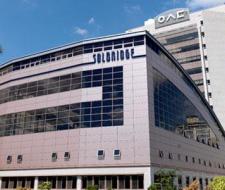 Accreditations AACSB
Accreditations AACSB South KoreaDaejeonCurrently watching: 10from 13056.00 $ / yearApply with documents
South KoreaDaejeonCurrently watching: 10from 13056.00 $ / yearApply with documents -
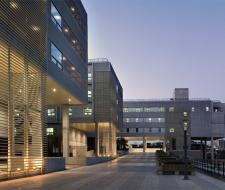 Apply with documents
Apply with documents -
 #34 in Public Universities in South Korea
#34 in Public Universities in South Korea South KoreaSeoulCurrently watching: 2Apply with documents
South KoreaSeoulCurrently watching: 2Apply with documents -
 Apply with documents
Apply with documents -
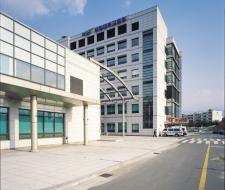 #27 in Best Global Universities in South Korea
#27 in Best Global Universities in South Korea South KoreaSeoulCurrently watching: 1Apply with documents
South KoreaSeoulCurrently watching: 1Apply with documents -
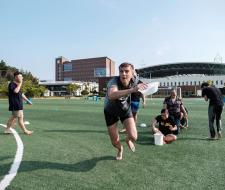 from 2500.00 $ / semesterApply with documents
from 2500.00 $ / semesterApply with documents -
 Apply with documents
Apply with documents -
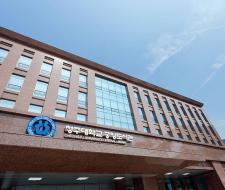 from 1300.00 € / yearApply with documents
from 1300.00 € / yearApply with documents -
 from 10000.00 $ / yearApply with documents
from 10000.00 $ / yearApply with documents -
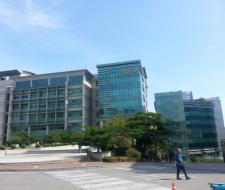 #9 in Best Global Universities in South Korea
#9 in Best Global Universities in South Korea South KoreaSeoulCurrently watching: 2from 795.00 $ / yearApply with documents
South KoreaSeoulCurrently watching: 2from 795.00 $ / yearApply with documents
Alternative destinations
Education information
South Korea is one of the best Asian countries to study, with 13 South Korean institutions ranked in Time Higher Education's top 100 Asian universities in 2015. The higher education system in South Korea has long been recognized in the West. In the XXI century, the country entered the era of world popularity thanks to high-quality higher education, famous cosmetics, dramas and K-pop performers - as a result, the "cream of society" of all nationalities gathers here, which guarantees an unforgettable experience abroad.
Advantages of Studying in Korea
South Korea boasts a unique and modern ambiance that is universally appealing. Beyond its technologically advanced cities, it offers a captivating culture. The country is home to top-tier universities specializing in business, healthcare, arts, and many other disciplines.
South Korean universities are globally recognized and esteemed for their world-class education. Several prestigious institutions are located predominantly in Seoul. Local universities frequently rank among the top 100 worldwide and provide ample resources for foreign students wishing to study in English.
In comparison to Western countries, South Korea offers relatively low tuition fees and living costs. Additionally, several scholarship programs further incentivize international students to pursue their higher education in English in South Korea. Benefits can range from tuition waivers to round-trip airfare and various other privileges. Since 1967, the Korean government has awarded scholarships to over 6,500 students from nearly 150 countries. Annually, numerous scholarships, such as the Global Korea Scholarship (GKS), are given to almost 2,000 foreign students.
International students studying on a valid visa can legally seek part-time employment to help fund their education in South Korea. The D2 student visa permits part-time work up to 20 hours a week and unlimited hours during holidays. With a stable economy, South Korea offers abundant job opportunities for college students, ensuring a financially secure future.
Furthermore, South Korea stands as one of the safest countries in Asia.
Characteristics of English-Taught Universities in South Korea
South Korea has a diverse educational system with various types of institutions. However, English-taught degree programs are available only at three national universities and nine private universities. National universities are established and managed by the Korean government, while private universities are created and operated by consolidated educational bodies. Some of these are affiliated with religions such as Confucianism (e.g., Sungkyunkwan University) and Christianity (e.g., Chun An University and Yonsei University). There's little difference between these two types of institutions in terms of educational quality and conditions. Nonetheless, national universities are particularly known for their research initiatives, while private universities are renowned for their strong ties with industry.
Engineering and computer sciences are the strongholds of South Korean universities. 40% of bachelor's programs taught in English at South Korean universities are dedicated to engineering and computer science. This mirrors South Korea's economic structure, where automotive and construction are among its most robust sectors. Most engineering and computer science courses are offered at UNIST and KAIST, two of the four state-run universities focusing on science and technology research. Notably, KAIST ranked 148th in the Times Higher Education World University Rankings for 2015-2016.
For English speakers, the best fits would be programs in the humanities and natural sciences, which align more closely with U.S. education.
Currently, the only Korean options with truly international programs, which don't require a bachelor's-level language proficiency, are Korea University, Yonsei University, and the women's university, EWHA. Two of these three, Korea University and Yonsei University, are part of the K and Y of the Korean "Ivy League," known as SKY. The "S" stands for Seoul National University.
The academic year in Korea runs from March to December, with an extended winter break. Admission is typically based on grades, a letter of motivation, and references. There are no work experience or volunteering prerequisites. An informal Skype interview before acceptance often forms a crucial part of the process to ensure students understand what they're getting into.
The educational system is modeled after the U.S. credit system, where a degree typically takes four years to complete, and an average of 18 credits per semester is the standard workload.
Korea University offers full scholarships for all eight semesters, and some provide a 50% scholarship for the same duration (tuition fees only). There aren't any awards based on family income or standard of living; students will need to fund their living expenses independently.
Types of English-Taught Universities in South Korea
South Korea boasts a diverse range of national and private, academic and vocational institutions:
Research Universities These are the most prestigious institutions in South Korea and can be categorized into:
- National: Funded by the central government.
- Local: Financed by local governments.
- Private: Supported by private non-profit educational trusts.
Industrial Universities These institutions provide more vocational qualifications than research universities but still offer bachelor's degrees. The tuition fees at industrial universities are generally lower than at research ones. These universities are a mix of both public and private institutions.
Junior Colleges Junior colleges in South Korea offer technical qualifications, with many degree programs lasting between two and three years. Courses provided by these colleges range from early childhood education, nursing care, and home economics to agriculture, engineering, and business administration.
Cyber Universities Mainly offering online degrees, the popularity of these universities has been on the rise since their inception in 2004. Cyber universities provide a blend of bachelor's and associate degrees in English.
English-Taught Programs in South Korea
Bachelor's Degree The Korean bachelor's degree program (Haksa) is offered by universities and colleges in South Korea. It typically spans 4 years, but certain professional degrees might extend to 5-6 years. For instance, architecture programs last 5 years, while dentistry, medicine, and traditional Eastern medicine run for 6 years.
A standard 4-year bachelor's degree requires a minimum of 140 credits. The first 2 years emphasize general education, while the latter half is specialized.
South Korea offers around 30 diverse bachelor’s majors. These include business administration, literature, visual arts, law, music, education, theology, economics, agriculture, political science, public administration, engineering, library science, nursing, Eastern studies, dentistry, pharmacy, and veterinary medicine.
Master's Degree The master's degree (Suksa) is awarded by universities and 4-year colleges. A master's program demands the completion of coursework and a thesis, with at least 24 or more credits and an average grade of 3.0 or higher. The thesis is reviewed by three or more examiners. To enroll in a master's program, students need to have a bachelor's degree.
Doctoral Degree Doctoral programs in South Korea are overseen by the Ministry of Education. These programs require at least 36 credits after a master's degree or 60 credits following a bachelor's degree. They also demand a written examination and the completion of a dissertation. The dissertation is evaluated by five examiners. Additionally, students need to prove proficiency in two foreign languages and maintain a B average or higher. Admission is based on having a master's degree in a relevant field.
Tuition Costs in Korea
Korean universities charge the same tuition for both domestic and international students. This is done to attract more international scholars and foster a global academic environment.
Private universities are pricier than public ones. Programs like medicine and engineering are typically more expensive. Besides tuition, newly admitted students need to pay a one-time entrance fee at the start of their program. Tuition is usually billed once or twice a year.
Tuition fees for bachelor's programs range from $4,000 to $20,000 annually, depending on the university and program, but average around $11,000. Scholarships are available from universities and governmental agencies.
Language programs are more affordable, costing between $1,300 and $1,600 for a 10-week term.
Housing costs vary based on city location. Densely populated areas or city centers tend to be pricier. University dormitory rents fluctuate between $384 and $1,228 per semester. Apartment rents range from $340 to $442, depending on size and location.
Admission Requirements for Korean Universities
Korean universities operate on a two-semester system: the spring semester (March to June) and the fall semester (September to December). Applications for studying in Korea are typically accepted 3-4 months before the start of the upcoming semester.
Students who wish to begin their studies in the spring semester should apply between September and November of the preceding calendar year. Those aiming to start in the fall semester should apply between May and June of the same calendar year.
Korean universities charge an application fee to cover processing costs. The average application fee for Korean universities ranges from $20 to $200.
As part of your application, you'll need to provide financial proof that you can afford your education. This usually involves submitting a bank statement in your name or a family member's name showing a balance of at least $20,000. Additional requirements include:
- An international passport,
- Passport-sized photo,
- Diploma from a completed school or prior higher education level,
- Academic transcripts with grades,
- English language proficiency certificate,
- Personal statement or essay,
- Bank statement/financial support letter,
- Letter of recommendation,
- CV/resume,
- Completed application form,
- Passports/identification of parents.
Top 15 best universities in Switzerland 2024
| 1 | Glion Institute of Higher Education Switzerland |
| 2 | Les Roches International School Montana |
| 3 | César Ritz Colleges Switzerland |
| 4 | IHTTI School of Hotel Management |
| 5 | Ecole Hoteliere de Lausanne |
| 6 | Geneva Business School |
| 7 | EU Business School Montreux |
| 8 | HIM Hotel Institute Montreux |
| 9 | Swiss Hotel Management School |
| 10 | Webster University Geneva |
| 11 | Business and Hotel Management School |
| 12 | Luzern IMI |
| 13 | Swiss Hotel Management School (SHMS) Caux |
| 14 | International University in Geneva |
| 15 | Culinary Arts Academy Switzerland |
Top 10 best universities in Netherlands 2024
Top 35 best universities and colleges in Canada 2024
| 1 | University of Toronto |
| 2 | McGill University |
| 3 | University of British Columbia |
| 4 | University of Alberta |
| 5 | Simon Fraser University |
| 6 | Montreal University |
| 7 | University of Windsor |
| 8 | York University |
| 9 | University of Guelph |
| 10 | McMaster University |
| 11 | University of Manitoba |
| 12 | University of Waterloo |
| 13 | Royal Roads University |
| 14 | Vancouver Film School |
| 15 | Kwantlen Polytechnic University |
| 16 | University of Calgary |
| 17 | Dalhousie University |
| 18 | Fanshawe College |
| 19 | University of Ottawa |
| 20 | Laval University |
| 21 | Sheridan College |
| 22 | University of Regina |
| 23 | Brock University |
| 24 | Thompson Rivers University |
| 25 | Humber College |
| 26 | Vancouver Island University |
| 27 | Mohawk College |
| 28 | Centennial College Toronto |
| 29 | Niagara College |
| 30 | Capilano University |
| 31 | Seneca College |
| 32 | Algoma University |
| 33 | Saint Clair College |
| 34 | Douglas College |
| 35 | LaSalle College |



